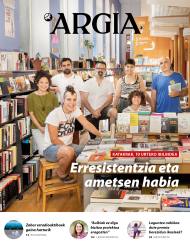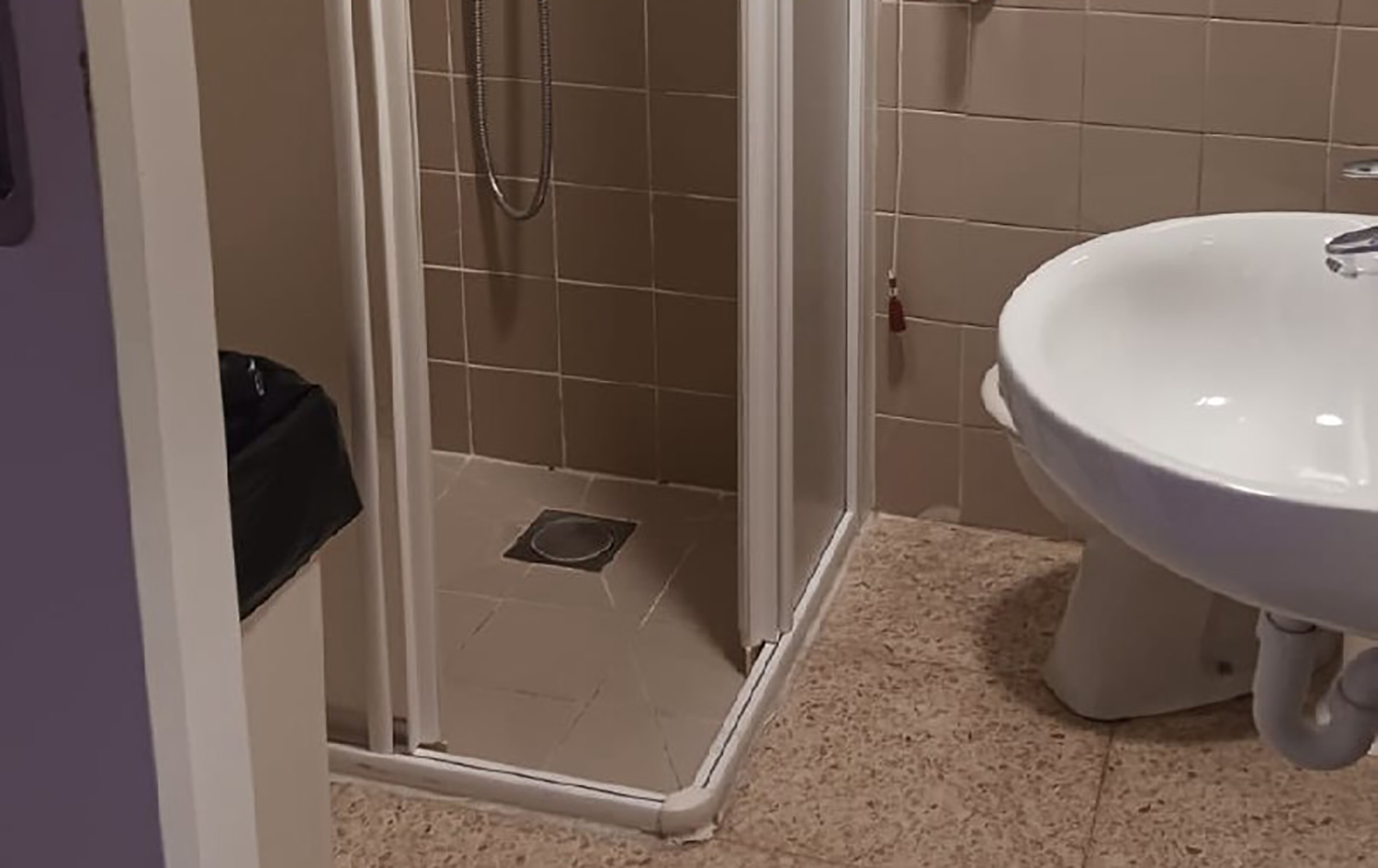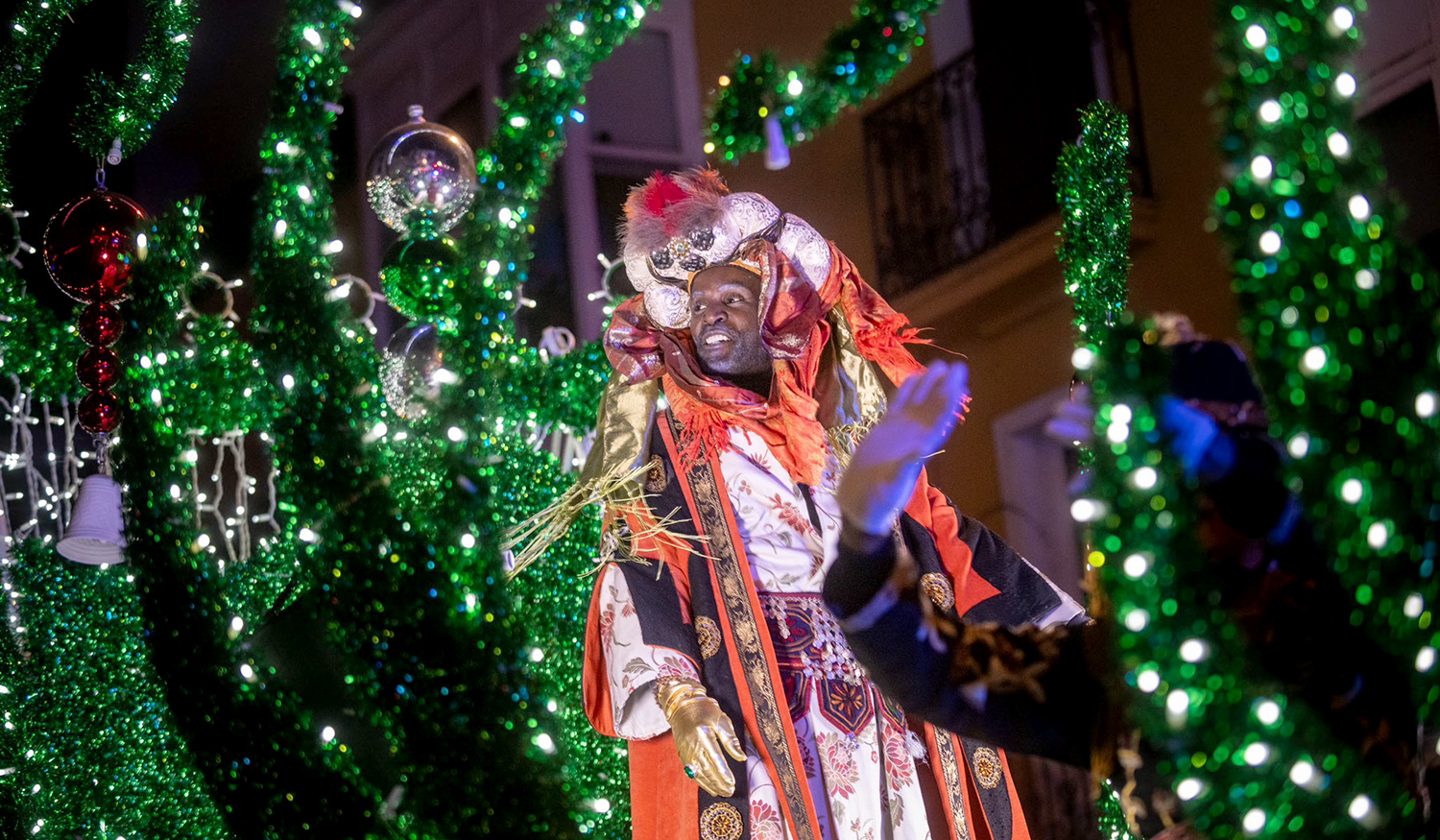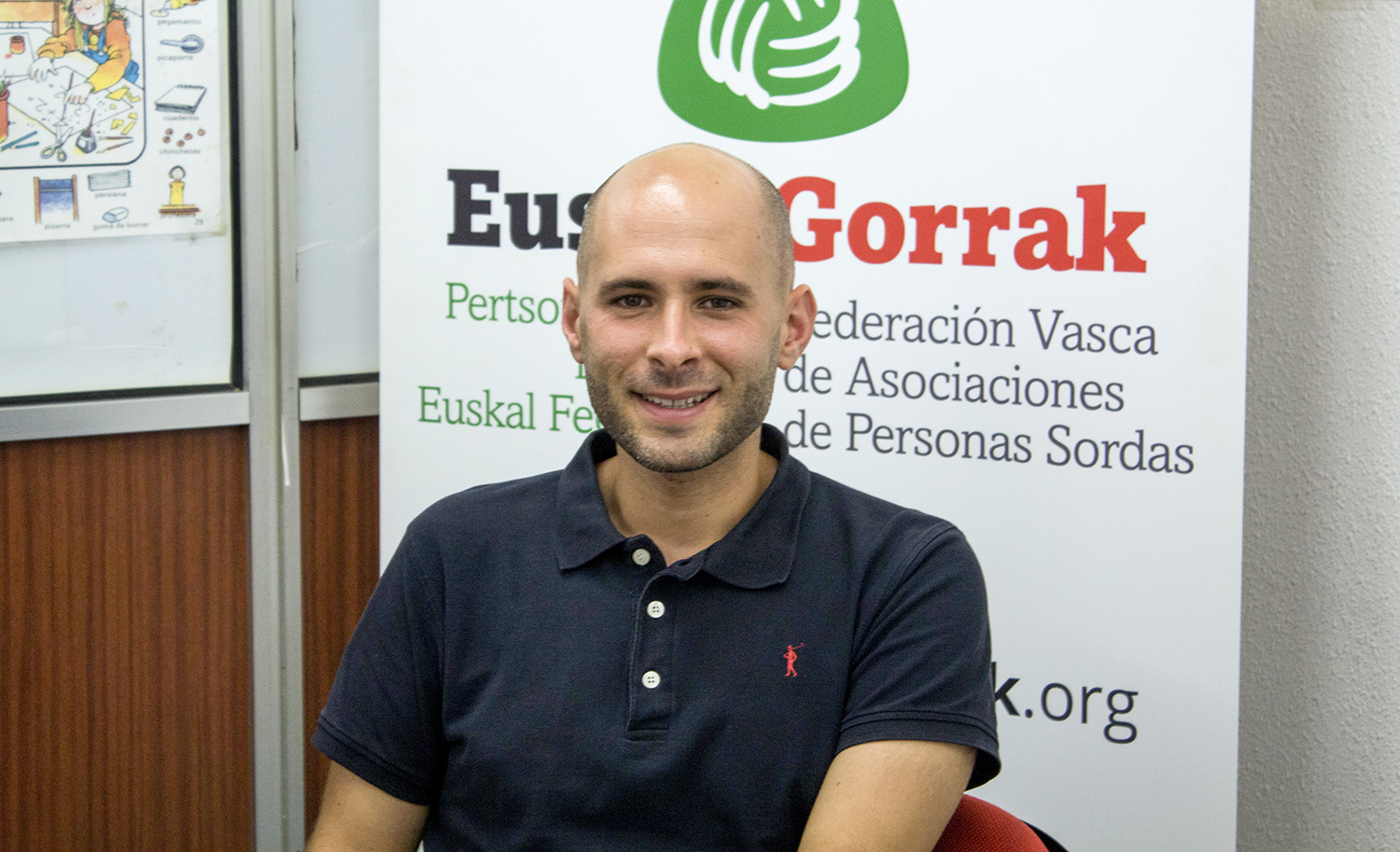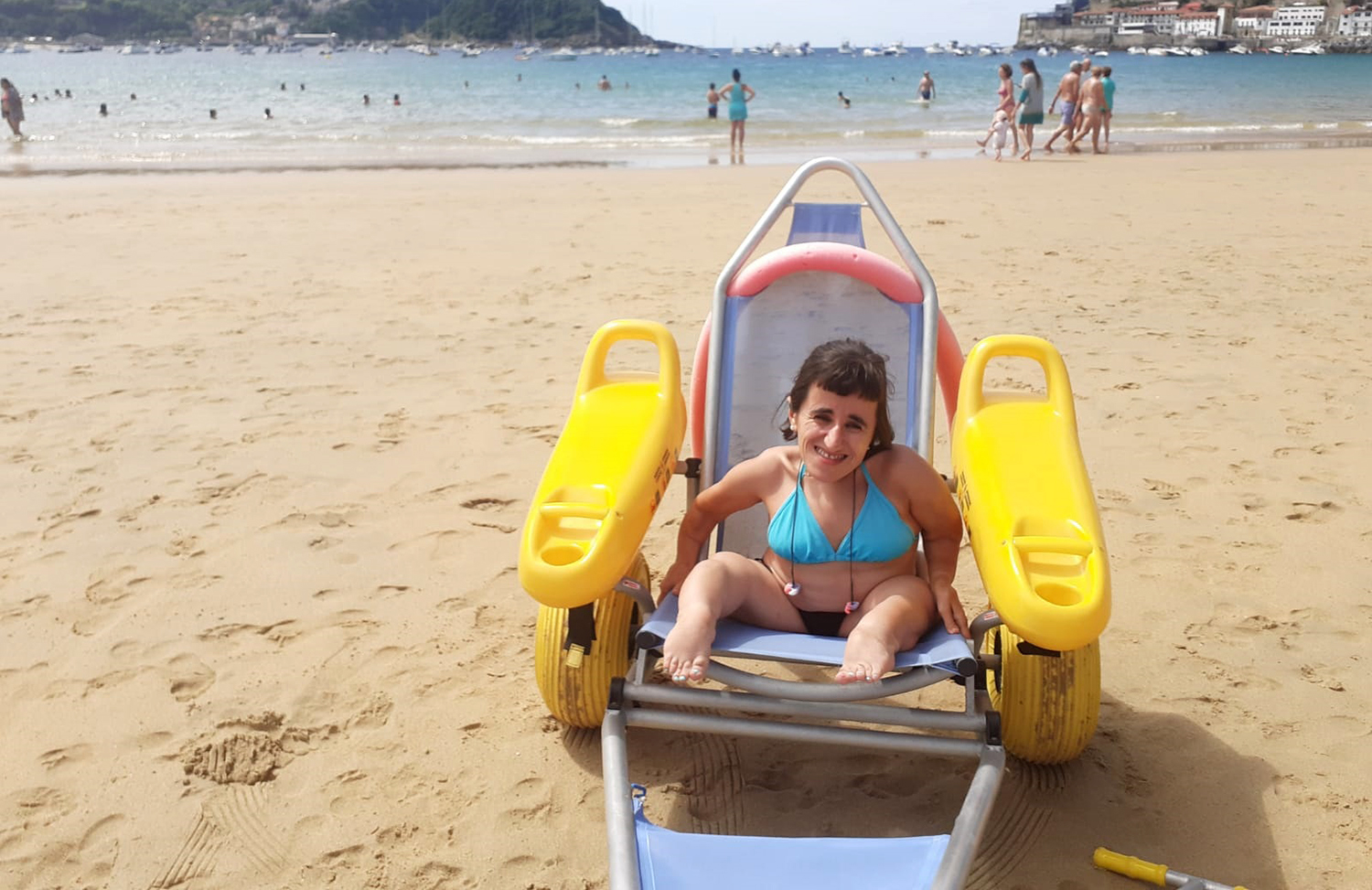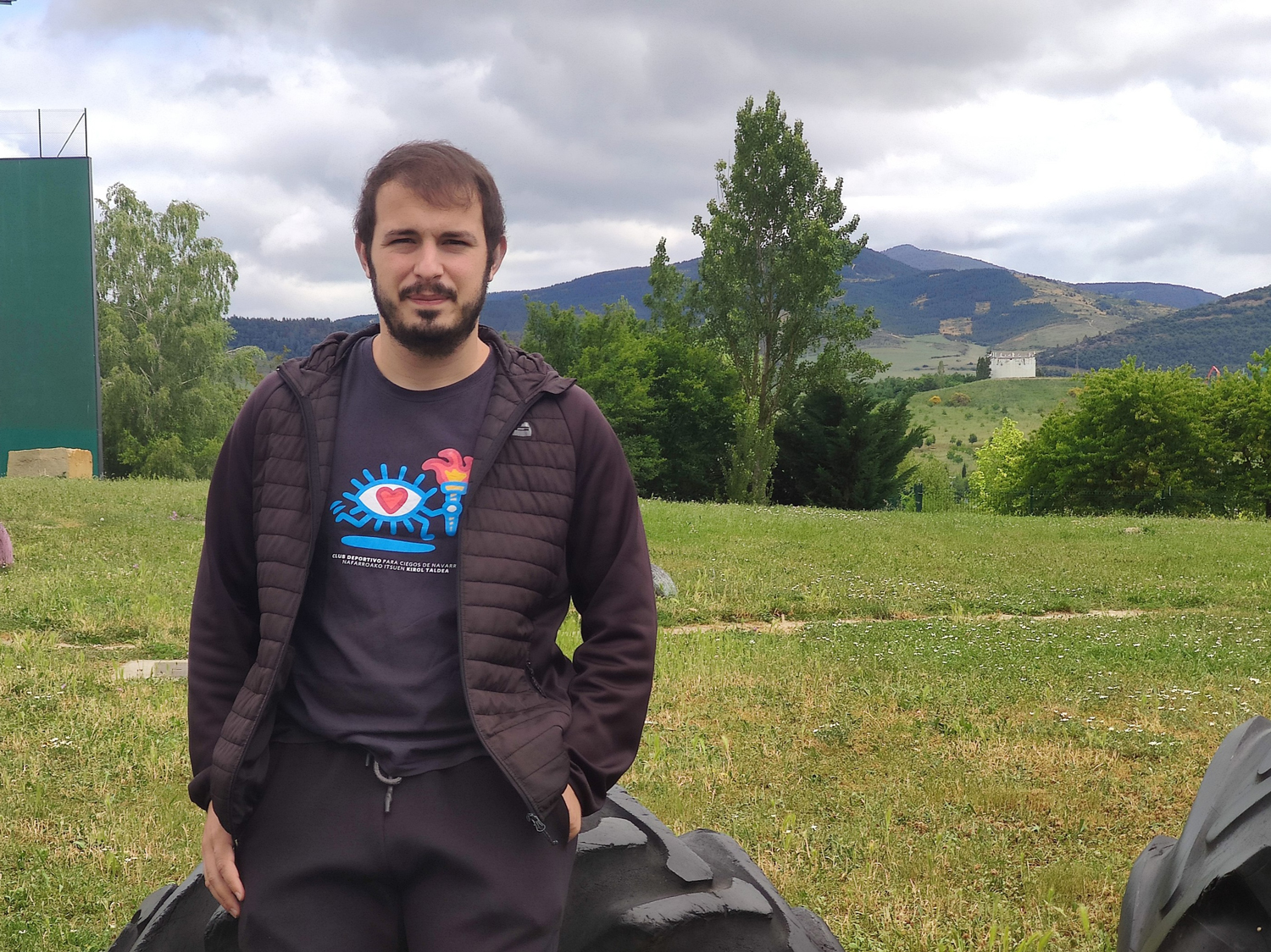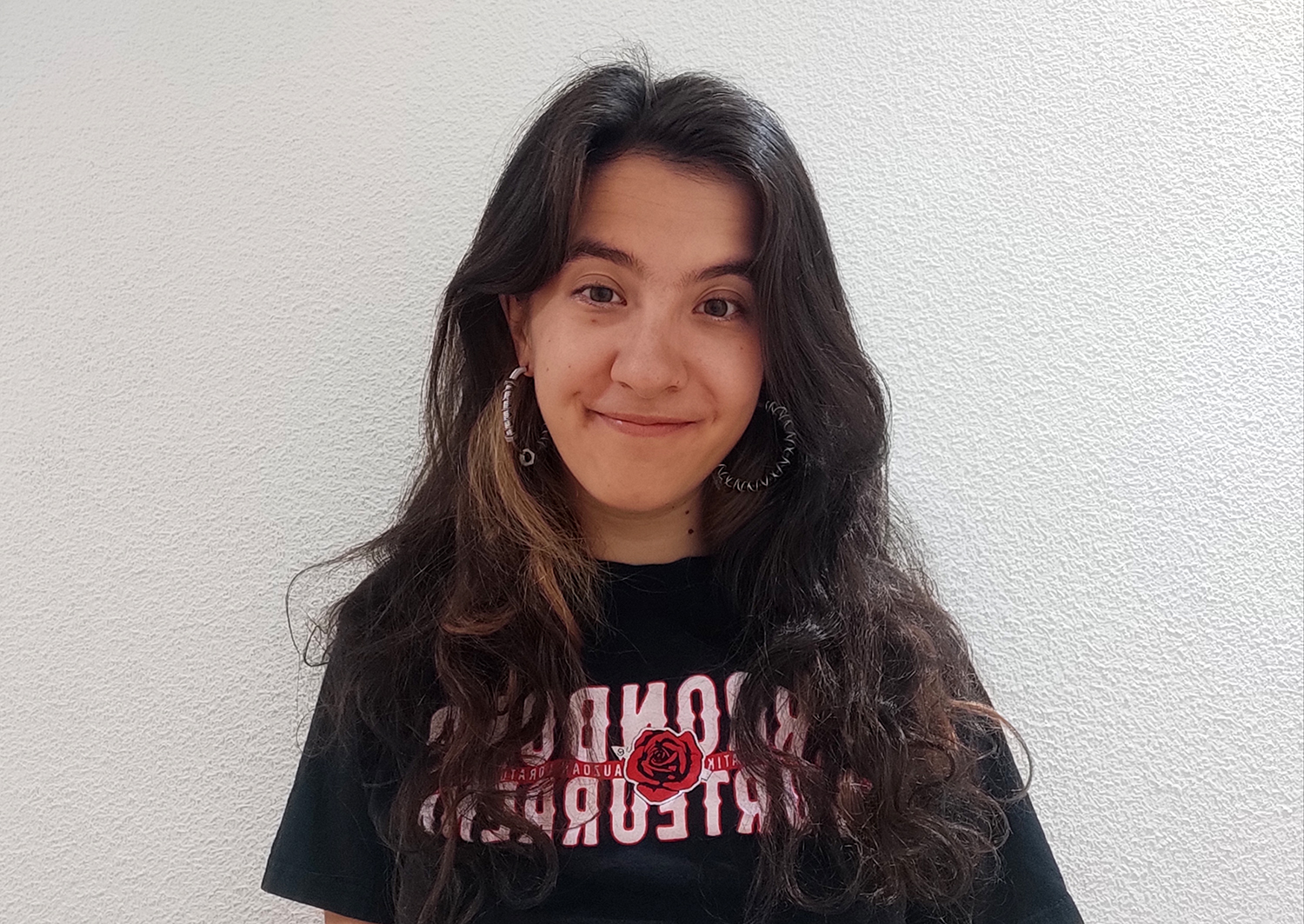"Being in the chair doesn't stop you from running your life project"
- Two years ago, he appeared in many media outlets, but my friend put me on the Lexuri Badiola runway. “I know who you have to interview,” he said. I wasn't wrong. Whoever stands in front of Badiola quickly receives his strength and his ability to speak clearly.

Lexuri Badiola. Lekeitio, 1993
She studied Social Education and Social Work because she wanted a personal care job and has worked for three years in municipal social services. Currently, however, she works as coordinator in the Association (Coordinating Association of People with Physical Disabilities of the Basque Country). In 2021, it appeared in various media, promoting with great impact a campaign to denounce the lack of accessibility to public transport.
First, would you introduce yourself?
I'm Lexuri, I'm 30, and today I live in Pasaia with my partner. From learning I am a social worker and a social educator, but at the moment my professional role has changed a little and I am as a coordinator rather than for the Association.
What is the Association?It
is a coordinating entity, which brings together three CAPV associations and has as one of its main objectives to assert where the rights of people with physical disabilities are not guaranteed. To this end, direct complaints are made or attempts are made to influence the administration to move towards an inclusive and inclusive society.
Recently, in ARGIA, the struggles of two students with cerebral palsy have been announced. Did you find any hurdles when going in a wheelchair while studying?
Unfortunately, yes. One day a drill was done and we had to empty the building. My room was on the first floor and I had to go down like everybody else, I had to go out in the street, but the elevator couldn't be used. The answer I was given at the beginning was that there will be someone to help you. What I'm telling you happened in the second race, in social education; in the first race I was still not as powerful a woman as now, there were terrors, insecurities, but for the second race my character was different, and I said, so far. The peers were also very powerful and we decided to do something.
How did they handle it?
We sat in front of the steering, with a banner, members of other faculties came, and then I made a couple of assemblies with the management team and from there we got my room installed on the ground floor. That was what I asked: to be able to go out on my own as everyone else.
That answer you received at first, saying "someone will help you," do you think it's a widespread trend?Unfortunately, this
society comes from a care modality, and I think we still have a hard time changing the chip. Sometimes we want to show what we are, and that is why we say, well, I will help you. No, if I need help I ask him, because I have a voice to ask him, and if I don't ask him, he means I want to strive. We often make this mistake: we protect too much, but we have to let the person develop their capabilities and create their project.
.jpg)
In that university claim you said that you had the support of your colleagues. Is it usual to receive the support of people in this type of fighting? It's
true that my peers pushed me a lot, I was very protected, but the feeling I have in general is that you're very lonely in these kinds of fights. Everyone thinks that we need to change society and take some steps, we all buy communiqués for an inclusive and just society, but when we have to hand our hands, nobody wants to get stuck, unless it touches you directly.
It's not the first time you've pushed something like this. In 2021 he made a successful collection of signatures to denounce the lack of accessibility to public transport. Where does the campaign come from?
I needed it at the social services of the Getxo City Hall and it did it daily by bus from Lekeitio to Getxo, by public transit. I took a bus from 6:15 Lekeitio and back from 16:45 Bilbao. What was the point? Bus access platforms often failed or failed. And the driver's answer was always: wait for the next. Once, being with a friend on the return trip, he said: Lexuri, this doesn't affect, you have to think about something else. We started talking and came up with collecting signatures from Change.org. I made it innocent, I didn't think it had that much impact. But it was amazing, in a few hours we collected 10,000 signatures, they called me from EITB… And I thought I can't go back now.
Did you panic?
No, I walked into the wheel and advanced. Then it did influence me, I'll tell you. But at the time I started giving, and one day the council called me to make an assembly. They were scared. I was clear that I was not going to go to that assembly alone. A Biscayan association contacted me, an association of people with physical disabilities, in this case Fekoor, and with them I went to the assembly.
Did you agree, no?
Yes. If the bus platform didn't work and in 15 minutes I didn't have another bus that did the same route, I had to get a taxi or a bus and they committed to checking the platforms.
Did you do the word?The
assembly ended, a few days passed and the bus platforms didn't come back. But I had a letter of what I had said in the assembly, and I communicated it to the driver. I was never put on a taxi, but a bus out of service, just for me, like I was out of Hollywood. Do I get a bus so I don't get a taxi? I was surprised, but I was partly worth it. What can really serve me is not having to put such measures and not make distinctions. Platforms should not fail.
"If I need help, I ask her, because I have a voice to ask her, and if I don't ask her, it means that I want to strive."
How is the situation today?
I can't tell you that, because now I don't use it. But I would like to stress that if a person with functional diversity has problems at some point in order to climb up, we must remember the commitments made, that is, the commitment to putting a taxi or other bus. Because those commitments do not have to be just to solve my situation at that particular time. Although, as has already been mentioned, my wish would be for all bus platforms to function well, because that is real equality.
The question has been put before us: How did the entire campaign stir you up?
Emotionally, it touched me a lot. When all the mess was over, all the media left me alone, and when I went back to my Lexuri, I looked back and I thought, oh, oh, what's happened for a month and a half. I have always been a very introverted girl, and look at what has emerged from a smallness, from a collection of signatures.
Open an Instagram account: The secrets they never told you.
I wanted to show positively what functional diversity really is. When we talk about functional diversity, it's always a little pessimistic and I wanted to show that functional diversity is not the worst thing in the world. Being in the chair does not prevent you from making the need, having a partner, being a mother… to carry on your vital project.
Now you have that Instagram standing still, right?
Yes. I had questions about where I left my privacy and intimacy with this new image about functional diversity. That's why it's there, and I don't know if I'll reactivate it.
What if you intend to partner?
I don't know. I am now coordinator for Elkartean. At the moment I am not comfortable connecting with other associations for something that has to do with my work and, for example, with conversations about my private experiences, as one of my functions is to show and disseminate Elkartean’s positioning in different areas.
If I were to join another partnership, for example through interviews, it would not be consistent with myself and my work, and I think it is essential to maintain coherence, which gives meaning to what I do.
On the road to a more inclusive society, what challenges do you see today?
Educate children in diversity, because all parents explain things to their children, but when you have a person in the chair in your crew, which has been my case, because adolescence is very hard. The human being is selfish, and in adolescence this trend doubles or triples.
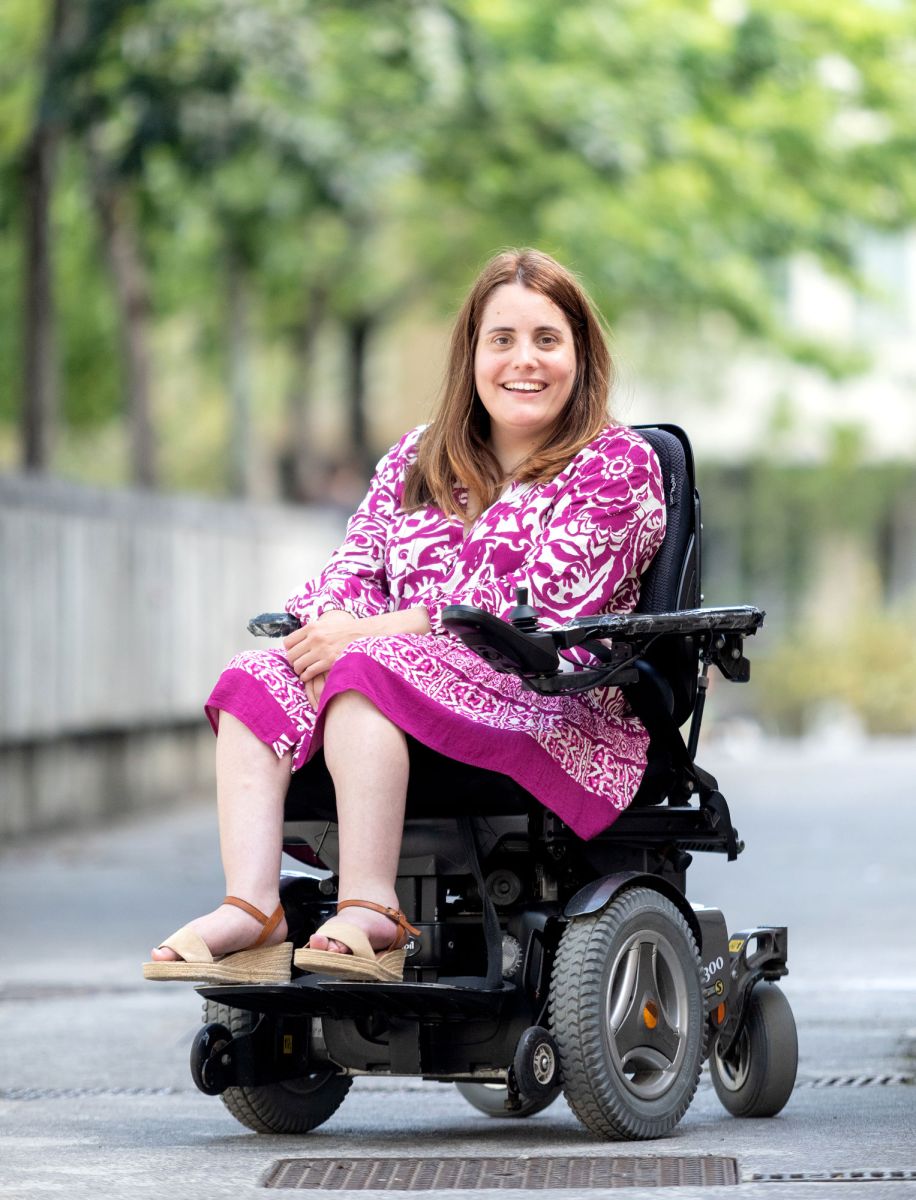
What experiences did you have during your adolescence?In
the juerga, for example, as a bar had stairs and couldn't enter, the bar was just outside because they claimed that others wanted to stay there. The easiest thing was that I would go home, so the "problem" would be solved, but I in general wouldn't go home because I had the same right as them to be there.
The hardest thing was to feel "charged" at that time for them, as they were thinking about staying with me in this situation. I think it's one of the strongest sensations a person can feel and you have to be careful about it, because they are scars that mark throughout life.
What should be done?
Even though in today's society, in the spaces shared with children, it is important to raise and work on these issues, to demonstrate that diversity is a wealth and that the child does not know how to act in the face of difference, to ask the person calmly —because normalization begins — and help him when it really is needed. Society is plural, there will be more and more and children must be educated.
I know it's not easy, and that effort may not give the desired results, but we have to work constantly on it, because it's one of the challenges of being a parent.
You want to be madre.Queremos enjoy as the
first couple, but later on we are willing to embark on this adventure of paternity.
When you talk about that desire or desire, do you find any prejudice? In my family
and in the people nearby, they do not know that when reality is realized by the decision of the couple, it is our desire and they will be willing to help them. But in society there is still prejudice when a family that comes out of this "normality" imposed by society decides to be a father, and doubts arise. For example, "How are you going to fix yourself as a child?" ".
"I am aware that we will have to use other strategies, and surely when the child is young his father will take more arms than me"
What will your position be?
I'm aware that we're going to have to use other strategies, and surely when the child is young his father is going to take more in his arms than me, but that doesn't mean he's going to be a bad mother or he can't want my son. The truth is that in society women are still given more responsibility in aspects related to paternity, and that should not be the case. The reality of each family is different and each one has to see what strategy suits it.
It is clear to me that when we decide to enter the adventure of becoming a father, I will go back to psychological therapy to face all the fears that may arise, to calm and understand especially this passion for different emotions, as well as to face the prejudices that may exist. We can have a lot of things, but without proper mental health, what we have is useless to us, because we won't be happy.
Would you like to add something before finishing?
I should like to say that, despite functional diversity, many things can be done. To the families of children who do not have a disability, I would say that they treat these aspects from the point of view of empathy, because today it has touched me but life can be changed in a minute and the situation can be turned around. Life is still quite complex to put more obstacles.
What about parents of people with functional diversity?
I would tell you that being afraid is very normal and that to be calm. It is true that the transmission of these fears to their children should be careful, because fears integrate very quickly and then it is not easy to break them. In my opinion, whether or not I have a plurality, the best gift a child can give is to give him wings to fly, fearful. Although it has a diversity, it has more capabilities than you believe. Laugh and give her wings to fly!
Desgaitasun fisikoa duen arkitekto baten alabaren etxea bisitatu ondoren idazten dut honako hau.
Desgaitasun fisikoa duten pertsonen taldeek ez dute arkitektoa maite, beraien bizitza zailtzen duen gaizkile bat kontsideratzen baitute. Gorrotoa ulerkorra da: arkitektoaren lanak... [+]
Elkarteko Elena Avalosek salatu du aulki gurpildunarekin komunera sartzea oztopatzea, pertsona desgaituen eskubideen, autonomiaren eta duintasunaren kontra doala.
Gazteagotan baino lotsa handiagoa dauka, baina horrek ez dio saltsa askotan ibiltzeko gogoa kentzen Leire Zabalza Santestebani (Iruñea, 1990). Beste gauza askoren artean, Motxila 21 musika taldeko kidea da. Nabarmendu du musika gauza asko aldarrikatzeko bide izan... [+]
Istorioetan murgildu eta munduak eraikitzea gustuko du Iosune de Goñi García argazkilari, idazle eta itzultzaileak (Burlata, Nafarroa, 1993). Zaurietatik, gorputzetik eta minetik sortzen du askotan. Desgaitua eta gaixo kronikoa da, eta artea erabiltzen du... [+]









